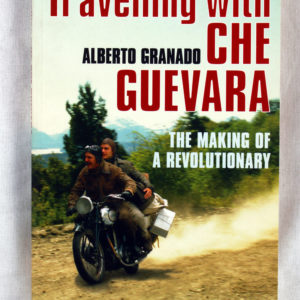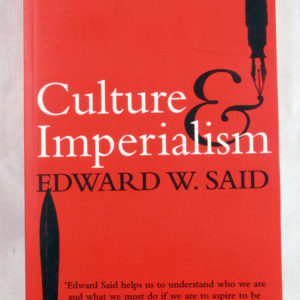The Art of War
₨ 318.00
The Art of War is a book which should be used to gain advantage of opponents in the boardroom and battlefield alike.
- Categories: History, Non-Fiction
- Tags: left books, Sun Tzu, the art of war
Twenty-Five Hundred years ago, Sun Tzu wrote this classic book of military strategy based on Chinese warfare and military thought. Since that time, all levels of military have used the teaching on Sun Tzu to warfare and civilization have adapted these teachings for use in politics, business and everyday life. The Art of War is a book which should be used to gain advantage of opponents in the boardroom and battlefield alike.
Related products
Stretcher-Bearer of Empire
In the pantheon of global liberation heroes, Mohandas Karamchand Gandhi has pride of place. Leaders like Mandela have lauded him as being part of the epic battle to defeat the white regime and prepare the way for a non-racial country. A popular sentiment in South Africa goes: ‘India gave us Mohandas, and we returned him to you as Mahatma’.
Against this background, The South African Gandhi: Stretcher-Bearer of Empire unravels the complex story of a man who, throughout his stay on African soil (1893–1914), remained true to Empire while expressing disdain for Africans. For Gandhi, whites and Indians were bound by an Aryan bloodline that had no place for the African. His racism was matched by his class (and caste) prejudice towards the Indian indentured. He persistently claimed that they were ignorant and needed his leadership, and wrote their struggles out of history—struggles this book documents.
The authors show that Gandhi never missed an opportunity to demonstrate his loyalty to Empire, with a particular penchant for war. He served as stretcher-bearer in the war between Brit and Boer, demanded that Indians be allowed to carry fire-arms, and recruited volunteers for the imperial army in both England and India during the First World War.
Ashwin Desai is Professor of Sociology at the University of Johannesburg. His previous books include South Africa: Still Revolting, ‘We are the Poors’: Community Struggles in Post-Apartheid South Africa and Reading Revolution: Shakespeare on Robben Island among others.
Goolam Vahed is Associate Professor of History at the University of KwaZulu Natal. He writes on histories of migration, ethnicity, religion, and identity formation among Indian South Africans.
In 1952 Alberto Granado, a young doctor, and his friend Ernesto Guevara, a 23- year- old medical student from a distinguished Buenos Aires family decided to explore their continent. They set off from Cordoba in Argentina on a 1949 Norton 500cc motorbike and travelled through Chile, Peru, Colombia and Venezuela. They worked as casual labourers along the way, as football coaches, medical assistants, and haulage hands. The poverty and exploitation of the native population changed them for ever. Each man later wrote an account of the journey. Alberto Granado realised later in his life that what they saw and encountered on their journey represented a crucial turning point. It strengthened Alberto’s determination to forge his career as a scientist. And it started the process that was to turn Ernesto- the debonair, fun- loving student- into Che, the man who fought for the liberation of Cuba and became the heroic and glamorous warrior fighting for freedom and social justice, who remains to this day in people’s minds Latin America’s foremost hero and one of the world’s great revolutionaries. A companion to Che’s Motorcycle Diaries, Alberto Granado’s book is a moving and at times hilarious account of how two carefree young men found their true purpose in life.
Culture and Imperialism is a 1993 collection of essays by Edward Said, in which the author attempts to trace the connection between imperialism and culture in the 18th, 19th, and 20th centuries. It followed his highly influential Orientalism, published in 1978.
Said conceived of Culture and Imperialism as an attempt to “expand the argument” of Orientalism “to describe a more general pattern of relationships between the modern metropolitan west and its overseas territories.
Ed. Salim Yusufji With an introduction by Bama
This book is an attempt at intimacy with B.R. Ambedkar in his hours away from history and headlines. The aim here is to recover the ephemera that attended Ambedkar’s life and died with him—his pleasure in his library and book-collecting, his vein of gruff humour, the sensation of seeing him in the flesh for the first time, or of stepping out of a summer storm into his house and hearing him at practice on his violin. Here, we have his attendants, admirers and companions speak of Ambedkar’s love of the sherwani, kurta, lungi, dhoti, and even his sudden paean to elasticated underpants. We meet Ambedkar the lover of dogs and outsize fountain pens, proponent of sex education and contraception, anti-prohibitionist teetotaler and occasional cook.
The fragments that make up this volume enable the recovery of his many facets—a rewarding biographical quest.






Reviews
There are no reviews yet.